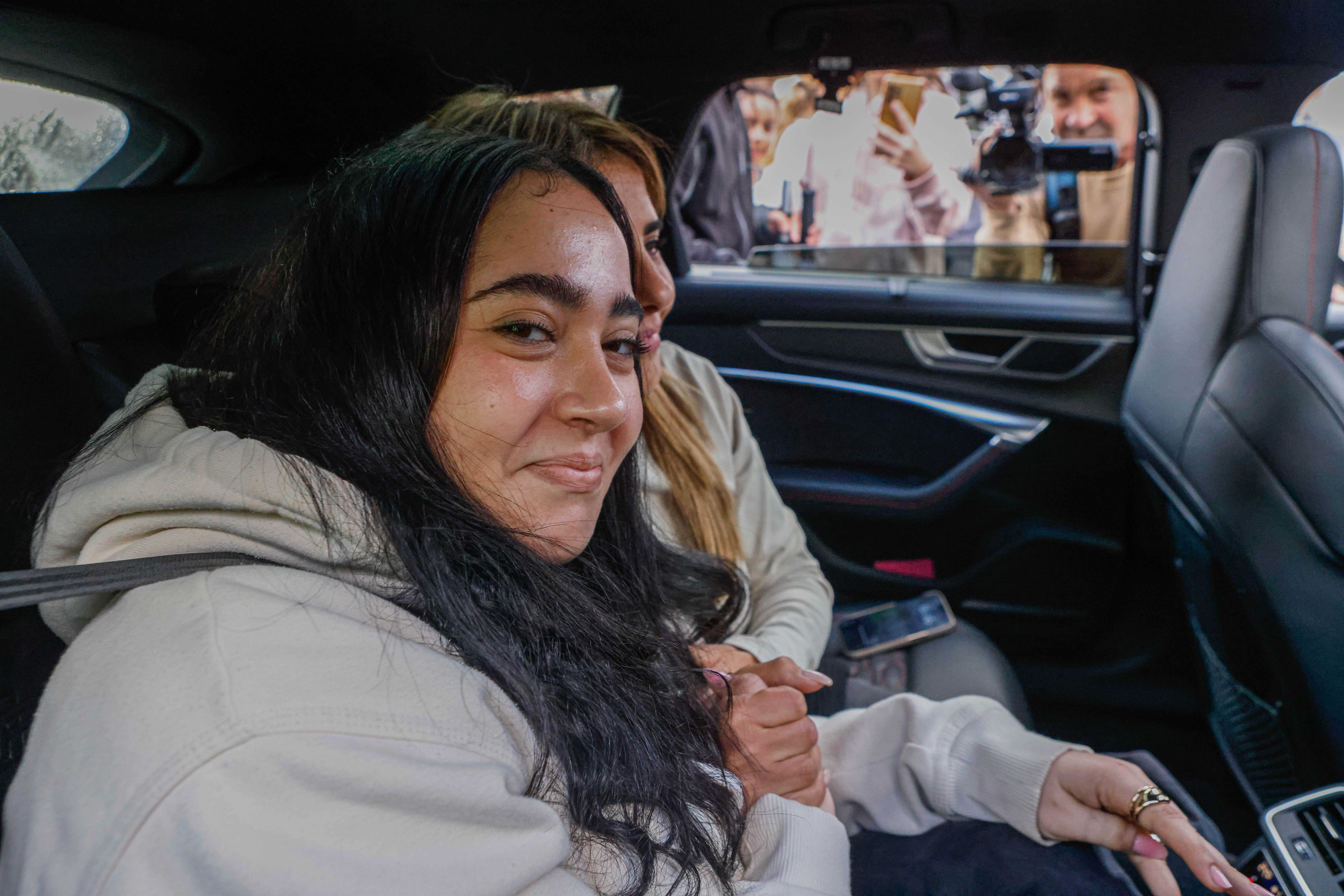Liri Albag reveals the truth about her captivity in Gaza
Liri Albag, Kidnapped on Oct. 7, Shares Her Story of Survival and Resilience in First Interview Since Release

In her first public interview since being freed from captivity in Gaza, Liri Albag, a former Israeli surveillance soldier abducted by Hamas on October 7, 2023, described the harrowing conditions she endured and the emotional toll of knowing some in Israel opposed a deal that secured her release. Speaking to Israel’s Channel 12 on March 5, the 20-year-old recounted the terror of her capture, the stark realities of life as a hostage, and her efforts to maintain boundaries with her captors.
“It feels like one long nightmare,” Ms. Albag said of the attack that began her 15-month ordeal. “I’ve been waiting for someone to wake me up, to tell me I was dreaming. But that didn’t happen.” She was one of five female soldiers kidnapped from the Nahal Oz military base near the Gaza border, where Hamas militants killed 15 other surveillance troops and took two additional hostages, one of whom was later murdered in captivity.
Ms. Albag, who had completed her training just two days before the assault, said she was unarmed and defenseless as militants stormed the base. “You see evil and hatred in their eyes,” she recalled of her first encounter with her captors. Fearing execution, she shifted into what she called “survival mode,” determined to find a way to stay alive.
She was released in January as part of the first phase of a hostage-ceasefire agreement, alongside fellow surveillance soldiers Karina Ariev, Daniella Gilboa, Naama Levy, and Agam Berger. The deal, brokered after months of negotiations, has stirred debate in Israel over the trade-offs involved, including a pause in fighting and the release of Palestinian prisoners.
A Glimpse Into Captivity
Ms. Albag described Gaza as “really hell,” a place where she and her fellow hostages faced severe deprivation. Food was scarce—often limited to a single pita a day or less when humanitarian aid was blocked—and clean water was sometimes replaced with saltwater. She lost 22 pounds during her captivity, she said, and basic hygiene was a distant memory. “I still haven’t been able to remove from myself the ‘filth’ of Gaza,” she added.
The hostages were forced to watch videos of the October 7 attack, including footage of their own capture, as a form of psychological torment. “They told us, ‘If you listen to us, we won’t kill you,’” Ms. Albag said. “We told them, ‘Yes, take us to Gaza,’ because we were simply afraid.”
Despite the power imbalance, Ms. Albag said she sought to assert some control. She refused to let captors enter her room while she slept and leveraged their need to maintain her well-being for their superiors. “I knew that they needed us more than we thought,” she said. Still, she endured verbal and physical abuse, with captors telling her, “You’re not going home.”
Ms. Albag also spoke of cultural clashes, saying her captors tried to impose restrictive norms on the women, forbidding loud laughter or crossed legs. Interactions with Gazan women offered little relief, and she came to view the broader population as complicit, recalling crowds cheering as she was driven into Gaza.
Bonds With Fellow Hostages
Throughout her captivity, Ms. Albag found strength in her relationships with other hostages. She described Keith and Aviva Siegel, an older couple also held by Hamas, as parental figures. After their release—Aviva in 2023 and Keith in January—she spent time with young children who were later freed, a period she called the most bearable of her ordeal.
She downplayed accounts of her own courage, including a story from fellow hostage Amit Soussana, who credited Ms. Albag with convincing captors she was not a soldier, potentially saving her life. “I did what I did to save those around me,” Ms. Albag said simply. “I felt that once they hurt one of the hostages, they were hurting me.”
Her closest companion was Ms. Berger, with whom she spent nearly the entire captivity. When told she would be released without Ms. Berger, Ms. Albag resisted, only relenting after being deceived into boarding a vehicle. Ms. Berger was freed the next day.
A Nation Divided
Perhaps most painful for Ms. Albag was the political discord in Israel over the hostage deal. Listening to a radio in captivity, she learned of those who opposed trading ceasefire terms for her freedom. “It was very difficult for us to think that there are people who are really ready to sacrifice us,” she said. “Why? What did I do? I’m responsible for getting kidnapped?”
Ms. Albag avoided engaging her captors in political debates, leaving that to Ms. Berger. She recounted their denial of the Holocaust and praise for Hitler, views that underscored the gulf between them. To cope, the hostages sang, marked birthdays, and read from a prayer book left by Israeli soldiers, striving to preserve their sanity.
Reflecting on her ordeal, she urged her sister via earlier freed hostages not to touch her shoes—a small gesture to signal she had held onto herself. Yet the scars remain. “We tried to remain sane there,” she said, her voice a testament to both resilience and the lingering weight of survival.
Times of Israel contributed to this article.